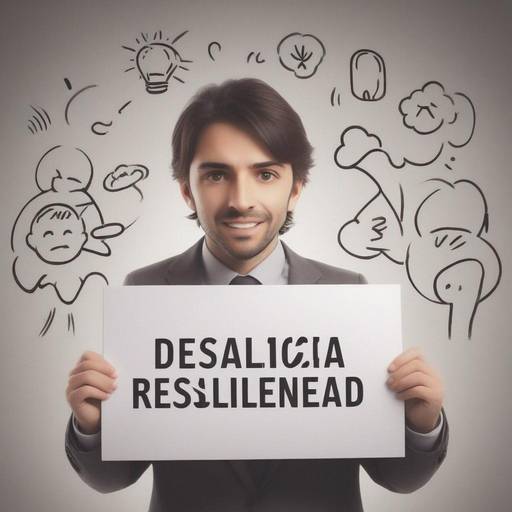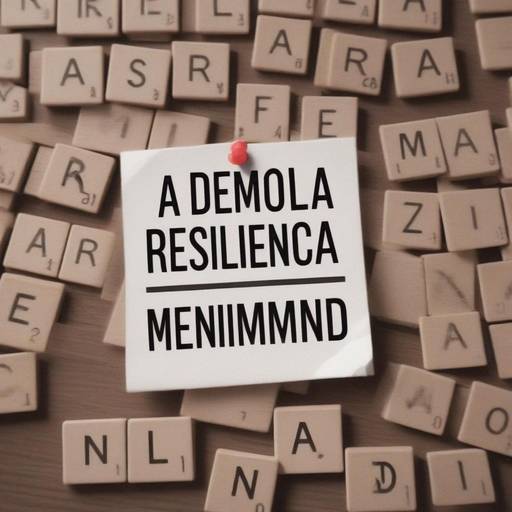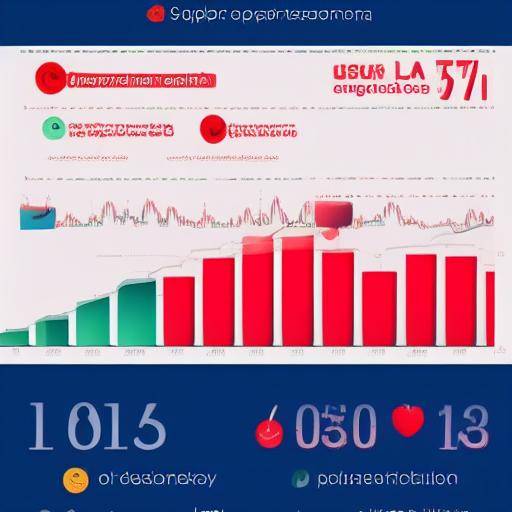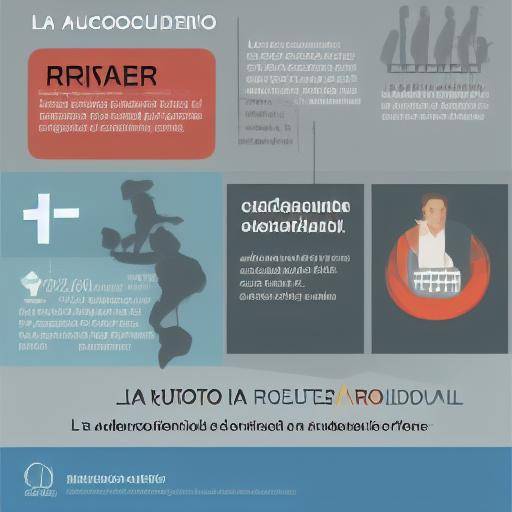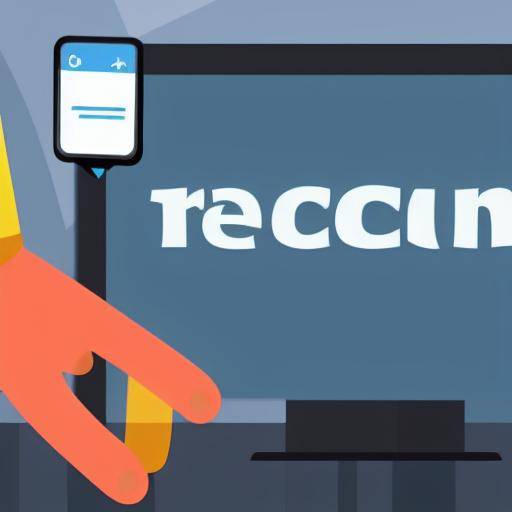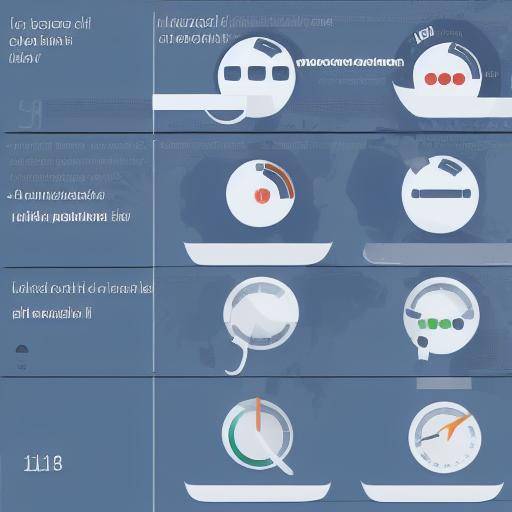
Introduction
In the pursuit of personal success, the development of resilience and self-control becomes a crucial factor. Resilience, the ability to recover from adversity, and self-control, the ability to manage emotions and behaviors, are skills that intertwine to forge a strong and balanced mentality. In this article, we will explore in detail how to develop resilience to improve self-control, providing practical advice, deep analysis and valuable information backed by experts.
History and Background
The notion of resilience has its roots in psychology and sociology. Over the years, eminent researchers such as Emmy Werner and Michael Rutter have studied the resilient characteristics in individuals and communities, consolidating their importance in the academic field. In addition, self-control has been approached from various perspectives, including neuroscience and cognitive psychology, forming an interdisciplinary field in constant evolution.
The concept of resilience has gained relevance in areas as diverse as education, mental health and leadership. Organizations such as the American Psychological Association have promoted resilience as a determining factor in achieving personal success. The intersection between resilience and self-control has become a central topic of study, backed by a growing body of research that demonstrates its positive impact on people's lives.
Analysis in Deep
The development of resilience entails many benefits. Resilient people tend to face stress better, maintain a positive attitude to the challenges and are able to adapt to changing circumstances. In the field of self-control, this ability allows to regulate emotions, resist temptations and make more conscious decisions. However, it is important to recognize that the road to resilience and self-control is sown with challenges. Perseverance and self-reflection are fundamental skills in this process.
Comprehensive review
The practical application of resilience and self-control is fundamental in personal and professional contexts. In working environments, self-control can enhance effective leadership, while resilience can be a pillar in the development of strong and adaptive teams. In addition, the development of both skills can benefit emotional health and long-term decision-making. It is essential to understand that resilience and self-control are not static, but can be cultivated and strengthened over time.
Comparative analysis
Resilience and self-control, while different skills, share a driving thread: the ability to face challenges and overcome obstacles. In the search for personal success, the combination of both skills can enhance the integral development of an individual. By building resilience, the ability to persevere in the face of adversity is strengthened, while self-control provides the basis for making conscious and balanced decisions.
Practical Tips and Accessible Advice
Developing resilience and self-control requires a proactive approach. Some practical strategies include self-reflection practice, the establishment of realistic goals, the cultivation of support networks and the adoption of healthy habits. Self-control can be strengthened through mindfulness techniques, effective time management and identification of emotional triggers. In addition, the incorporation of physical and mental self-care routines can contribute significantly to the development of both skills.
Industry Perspectives and Expert Reviews
Experts in psychology, coaching and leadership have highlighted the importance of resilience and self-control in achieving personal success. Some prominent voices have emphasized the need to integrate these skills into educational and corporate environments, fostering their practical application as an integral part of human development. Understanding these resilient and self-control qualities can have a significant impact on individual and collective decision-making in various areas of society.
Case Studies and Practical Applications
Case studies represent a valuable tool to illustrate the successful implementation of resilience and self-control. Specific examples of individuals who have overcome significant challenges using these skills offer a reliable perspective of their real impact on everyday life. On the other hand, practical applications in educational, business and health contexts provide a broader view of how these skills can influence different environments and situations.
Future Trends and Predictions
As the field of positive psychology and personal development continues to evolve, promising trends in resilience and self-control are seen. The integration of specific programs for the promotion of these skills in school and work environments seems to be a way forward. In addition, the application of technological tools to support the development of resilience and self-control is an area of growing interest and research.
Conclusion
The development of resilience to improve self-control represents a path of self-discovery and personal strengthening. By cultivating these skills, the ability to face challenges with determination and emotional maturity is enhanced. Personal success is closely aligned with the ability to adapt, learn from adversity and make decisions with clarity and emotional control. Ultimately, the journey to resilience and self-control is a continuous process leading to the empowerment and integral development of the individual.
Frequently asked questions
- What is the relationship between resilience, self-control and personal success?
Resilience and self-control are fundamental pillars for personal success, as the ability to overcome challenges and regulate emotions directly influences decision-making and effective management of adverse situations.
- How can I develop resilience in my daily life?
Resilience development can be fostered through practices such as stress management, realistic goals setting, personal care and pursuit of emotional support.
- What is the importance of self-control in decision-making?
Self-control plays a key role in conscious decision-making, allowing a balanced assessment of situations and managing emotions for a more effective response.
- Are there cultural differences in the perception of resilience and self-control?
Cultural differences can influence the conceptualization and expression of resilience and self-control, however, the importance of these skills is recognized in various cultural contexts.
- How can companies foster resilience and self-control among their employees?
Businesses can promote resilience and self-control through well-being programs, emotional skills training and creating a working environment that promotes emotional balance.
- What are the most common challenges in building resilience and self-control?
Common challenges include resistance to change, lack of self-knowledge and the difficulty in keeping track of resilient and self-control skills.
In learning to develop resilience to improve self-control, a path to self-realization and the ability to manage situations with serenity and determination is established. These skills form a crucial fabric for personal success, establishing solid foundations to meet the challenges inherent in life with maturity and emotional clarity.





